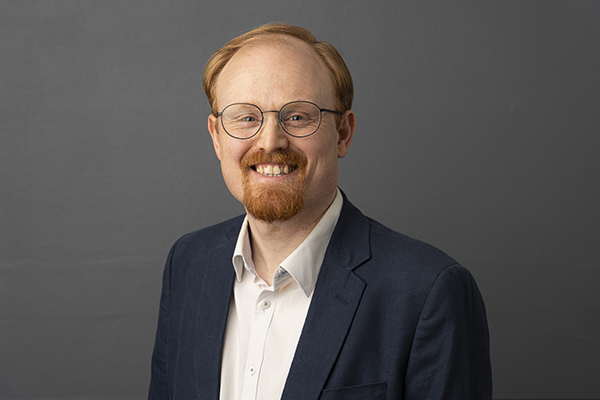Rune Nyrup
Research leader

Project title
Towards Responsible Explainable AI Technologies (TREAT)
What is your project about?
My project concerns the role of explanations in ensuring that artificial intelligence is applied in an ethically responsible way. Specifically, I will examine the advantages and disadvantages of what is called “Explainable Artificial Intelligence”, that is, different technologies for generating explanations of decisions made using artificial intelligence. Such explanations are important in order to enable people to understand and thereby think critically about the artificially intelligent systems that are increasingly impacting our everyday lives. But they also risk creating a false sense of understanding, which can be exploited to mislead or even manipulate. To resolve this dilemma, the project will therefore develop both philosophical theories and practical guidelines for how we can distinguish between ethically beneficial and ethically pernicious explanations.
How did you become interested in your particular field of research?
The intersection between philosophy and responsible artificial intelligence combines two things that originally motivated me to pursue a research career. I am, on the one hand, strongly motivated by the opportunity for my research to make a concrete, positive difference to the role science and technology play in society. Artificial intelligence is currently developing rapidly. It is therefore important we, as a society, find out how to ensure that the technology is developed and deployed responsibly. But in order to do this, we also need to confront principled, philosophical questions, such as what explanation and understanding even are, and why they matter. It is this tension between the practical and the principled philosophical questions that sparked my interest in the field.
What are the scientific challenges and perspectives in your project?
The challenge will be to articulate solutions that are both timely and durable. The technology is developing quickly, so there is a risk that the ethical criteria we articulate today, will seem obsolete by tomorrow. This, however, is also where the perspective lies. Artificial intelligence creates new possibilities, which force us to reevaluate many of the assumptions that earlier philosophical theories took for granted. For example, we now need to consider automated systems that are able to generate very convincing explanations, without this necessarily reflecting any deeper understanding, as we would normally assume for human experts. It will be interesting to explore, what new ethical challenges and possibilities this creates.
What is your estimate of the impact, which your project may have to society in the long term?
Artificial intelligence is increasingly used by both private companies and public institutions. Therefore, it is important that the people who are impacted, also have a real opportunity to understand and potentially challenge decisions made using artificial intelligence. My project will help ensure that the explanations that are generated by Explainable Artificial Intelligence in fact serve this purpose. More broadly, the ambition of my research is to contribute to our ability as humans to comprehend and navigate the increasingly complex world that the technological development is creating.
Which impact do you expect the Sapere Aude programme will have on your career as a researcher?
The Sapere Aude: DFF Starting Grant provides a fantastic opportunity to build a research group and strengthen my networks at the interdisciplinary intersection between philosophy and responsible artificial intelligence. In contrast to the cliché of a philosopher as someone who just sits by themself thinking, I believe the most interesting philosophical research happens through dialogue with colleagues and collaborators from other scientific disciplines. I will now get the opportunity to hire talented younger researchers and lead a project that bridges the philosophical and the practical problems with artificial intelligence, which I am really excited about.
Background and personal life
After having lived in England for many years, my wife and I recently moved to Aarhus. We also have two young children, who keep us busy in the weekends reading stories, watching cartoons, building with Lego, and going to the playground. When the kids are asleep I like to relax by playing Dungeon and Dragons online with some of my old colleagues or by playing computer games while I listen to podcasts about history or politics. I also dream about getting back into playing music, but first we just need to get a place, where there is space for the piano.
View all research leaders here
Research institution
Aarhus University
Research field
Philosophy and responsible artificial intelligence
City of your current residence
Aarhus
High school
Nordfyns Gymnasium
